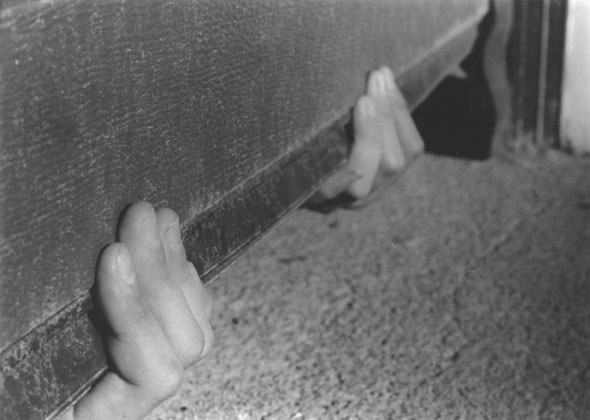Forgotten
 Schoolyard Riot, Dan Lynn
Schoolyard Riot, Dan Lynn
Our daily experience is of a local world viewed through many expectations, and for good reason; it would be overwhelming to approach every social situation as totally new, without an ability to make predictive use of dispositions attributed to others. It is this ability to consistently form accurate expectations of the behaviour of others which allows us to find comfort in a home community.
We form these predictions based on our knowledge of those we meet and of our surroundings, only half remembering to remain aware that that what informed our understandings of things ages, changes, and evolves. And thus while we live our complex lives through convenient reference to our structures built to represent the things and people around us, the things those structures reference continue to exist and grow independently, half forgotten beneath our structured conceptions of them.
Our friends often change into virtual strangers because we forget to find out who they are today while we are too busy in our pursuit of new opportunities apart from each other, even though the friendship itself can endure because of a mutual attachment to some long ago companionship and its’ half-forgotten structures. Our cities and homes change and grow and die literally beneath our feet, dispassionately requiring that our old structures of understanding them be forgotten and replaced with the new if we are to remain in touch with our locales. We fall in love with the idea and ideal of a time, place, person, or feeling and hold it beyond the point that we’ve since forgotten to care about the fate of who and what were involved in favour of our well-defined memories.
Eventually, the grind of repetition can take away from our daily experiences that which gives them the flavour we crave as a playful species, and our conceptual structures ossify in our minds as a natural outgrowth of such daily stagnation. More than merely boring us, a life of repetition hastens our forgetting of the changing nature of the world outside of our lives which we base our expectations on.
But the structures we impose upon the world are not set in any stone more binding than we allow them to become bound by. The most plain features of daily experience and the most traversed of local paths becomes phenomenal when taken slowly and inquisitively, in the spirit of building new structures and examining old. In this truth is contained a significant feature of the “forgotten”: that which we forget can be learned anew, if only we care to commit ourselves to that learning.
As inquisitive minds and playful beings, the ability to forget our surroundings and rediscover our relationships with friends, family, and places allows us the unexpected luxury of forgetting the richness of our every day experiences and the wonder of reconnecting with them at will or by surprise. Those who would consider the “forgotten” merely in negative terms would do well to remember something beautiful.